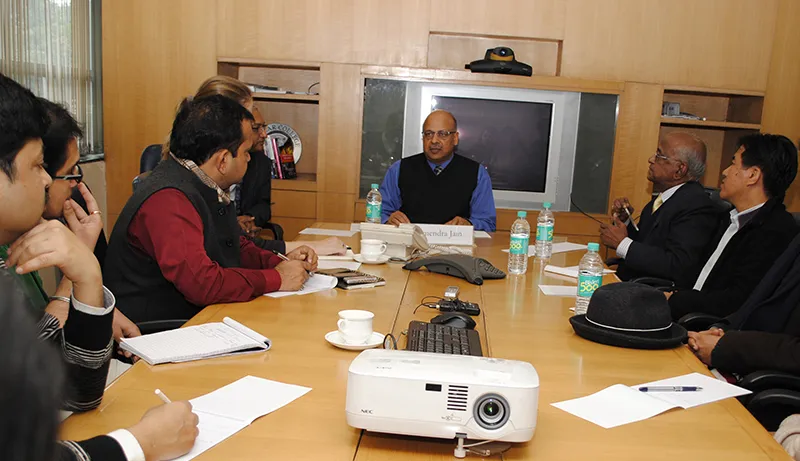Japan is beginning to get nervous about the direction of US policies and is beginning to question the stability of the US-Japan Security Treaty, according to a scholar based in Australia.

Japan is beginning to get nervous about the direction of US policies and is beginning to question the stability of the US-Japan Security Treaty, according to Prof. Purnendra Jain of the University of Adelaide.
There are also doubts whether the treaty still remains the same as before, Prof. Jain, a specialist of Japanese studies, said during an interactive session at Observer Research Foundation on January 22, 2014.
While discussing Japan’s defence and security policies, it was also mentioned that the signs and trends seen in US behaviour may point towards the US abandoning Japan which continues to make Tokyo anxious regarding the US.
The increasing role of China in the Japanese defence strategy was also discussed. While the US remains the lynchpin of the Japanese security, what Prof Jain termed as the ’China factor’ has become an important issue in Japan’s security. There has been a dangerous escalation of tension between Japan and China and the situations in the East China Sea and the South China Sea continue to remain precarious with blame being tossed between both parties. Japan has been seen improving security networks with countries like Vietnam and the Philippines where China has become a concern as well.
Prof. Jain offered valuable insight into Japan’s current stance on a variety of issues. He said there has been a shift in Japan’s policy from passive pacifism to active pacifism since post cold war.
Elaborating on the shift in Japan’s policy, Prof. Jain said the last three decades have been focused on making Japan secure not through hardcore defence and security strategies but rather through softer issues. The oil shocks of 1973 focused Japan’s security policies towards resources and energy leaving little room for military security. What remains interesting is that despite the shift to active pacifism, Japan continues to remain a pacifist state but within this pacifism, there have been certain changes in legislations and defence cooperation guidelines. Hence, it is evident that post cold war, the outlook on Japan’s pacifism has changed substantially.
At the outset of the discussion, Prof K.V. Kesavan, Distinguished Fellow at ORF, posed a question regarding the mounting pressure to amend Article 9, the war-renouncing provision of Japan’s Constitution. It was put forth that one of the goals set by Abe for his term is to amend this article. However, this situation remains deeply controversial and the national consensus on this is still evolving. At this point, Prof Jain delved deeper into the reasons for such a change. The evolution of Japan’s defence policy and a gradual change in the constitution stems from the desire to make Japan a ’normal’ country in every way. This sentiment was earlier put forth by Yasuhiro Nakasone and Abe has joined this line of thinking, believing that Japan should be not be constrained like it has been in the past. However, it was opined that Abe’s plans of changing the constitution will take time beyond his term and remains contingent on other factors as well.
As to the issue of Japan and India, Prof Jain said that the relationship looked quite strong with a flurry of activities between the two countries. Compared to the last five years, there has been a greater level of investment as well as economic of aid from Japan. India has become the greatest recipient of aid from Japan and while the absorption rate of this aid remains extremely low, the Japanese government continues to be willing to offer more. One missing component of the India - Japan relations, according to Prof Jain is of grass root level exchanges. It was felt that there is a greater need for Japanese presence in India in terms of the language, knowledge of the country and student exchanges.
The discussion was organised in the light of increasing focus of Japan on India and Prime Minister Shinzo Abe’s visit to India (January 25-27). Since Abe’s return to power in 2012, Japan has come in the limelight for its unconventional change in policy -- be it in security or energy or economics. Japanese Prime Minister, Shinzo Abe has been active in trying to widen the parameters of Japan regarding its security policies and has taken a number of steps such as the creation of the National Security Council, change in defence guidelines and a new defence build up programme.
(This report is prepared by Pooja Suri, Research Intern, Observer Research Foundation, Delhi)
The views expressed above belong to the author(s). ORF research and analyses now available on Telegram! Click here to access our curated content — blogs, longforms and interviews.




 PREV
PREV

